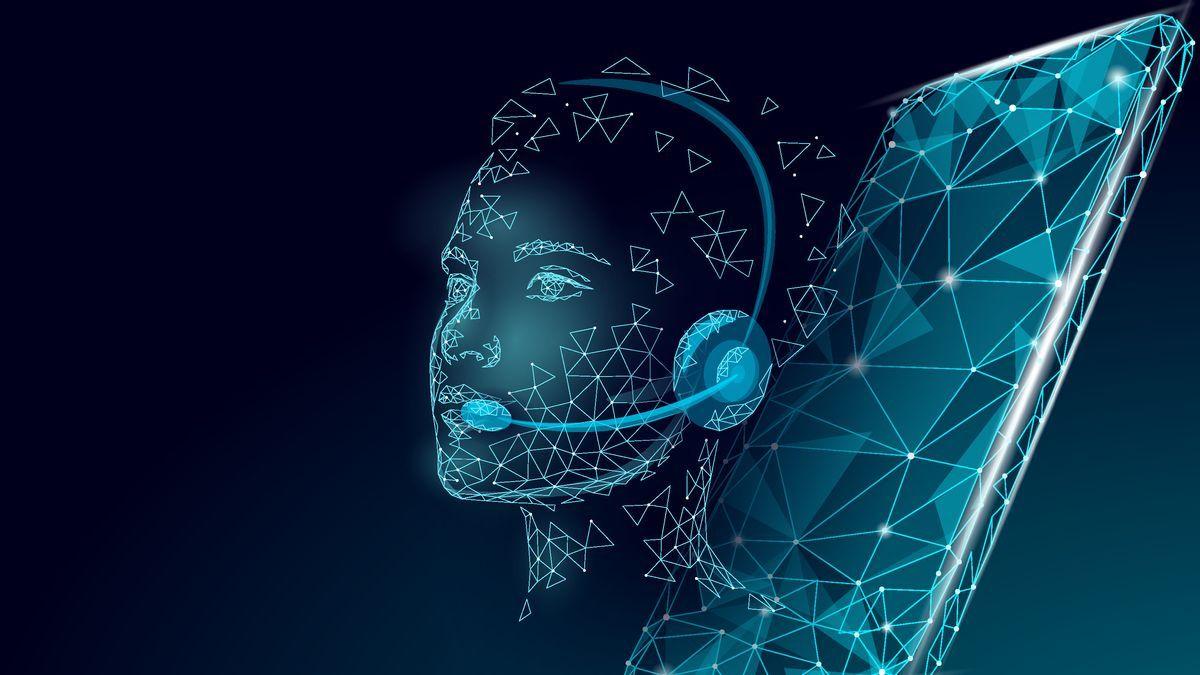Companies Rethink AI-Driven Customer Service as Human Touch Remains Essential
2 Sources
2 Sources
[1]
Half of companies planning to replace customer service with AI are reversing course
Editor's take: Customer care has become one of the most notorious business failures of the digital age, and everyone knows it. Now, artificial intelligence threatens to take this horror show of impersonal, unreliable service to a whole new level. Within a couple of years, 50 percent of the organizations that had planned to replace their customer service personnel with AI models are expected to reverse their decision. According to a recent survey from Gartner, the original goals were overly ambitious - and ultimately unachievable. The transition to an AI-focused business world is proving to be far more challenging than initially anticipated. In March 2025, the US research firm surveyed 163 leaders in the customer service and support industry. Nearly all respondents (95 percent) now say they plan to retain human workers while "strategically" evaluating what role AI technologies can realistically play within their organizations. Kathy Ross, senior director analyst at Gartner, noted that while AI has the potential to transform customer service, it is not a miracle solution. Human interaction is still essential in many situations, especially when customers reach the end of a frustrating experience and need real help with a newly purchased product that isn't working as expected. Gartner now views AI services as a complement to - rather than a replacement for - human interactions. "As the landscape of customer service continues to evolve, integrating AI with human capabilities is essential," the company stated. Despite this shift in perspective, some high-profile companies are still moving forward with plans to lay off thousands of customer service workers and replace them with generative AI technologies. But according to Gartner VP Analyst Brian Weber, many of these initiatives are not going as planned, for a variety of reasons. Executives are rapidly embracing AI in hopes of achieving massive cost savings, but they often underestimate the true costs involved in deploying and maintaining these technologies. Generative AI, Weber noted, is no smarter than a brick, and its implementation can result in a high total cost of ownership that may ultimately outweigh any expected savings. People just want to talk to other people on the phone, Weber said, adding that many customers now fear AI will block their access to human support. In fact, 51 percent of customers said they trust human agents to resolve their issues, while just seven percent place the most trust in AI. According to Weber, AI-only contact centers remain both technically unfeasible and undesirable from the customer's perspective.
[2]
Many businesses are thinking twice on using AI bots
A growing amount of of companies are abandoning plans to drastically reduce human customer service roles in the next two years due to technical, operational and cost-related challenges, research has claimed. A new Gartner report found a staggering majority (95%) plan to retain human agents as a result, acknowledging AI's current limitations in handling complex or nuanced customer interactions. The report also confirmed customers prefer human interactions and support, with only 7% trusting AI most for issue resolution. Three in five (62%) also worry that AI will make it harder to reach a human if they need more detailed support. Gartner's analysts emphasized that AI cannot fully replace humans in the field just yet, citing poor user experiences and unexpected costs from failed AI implementations. So far, projects expecting GenAI to solve all customer issues have largely fallen short of expectations, and the idea of a fully human-less contact center is neither feasible nor desirable at this stage. "Human touch remains irreplaceable in many interactions, and organizations must balance technology with human empathy and understanding," Senior Director Analyst Kathy Ross explained. "A hybrid approach, where AI and human agents work in tandem, is the most effective strategy for delivering exceptional customer experiences." However, separate IBM research revealed UK businesses are still bidding big on AI - four in five (83%) execs expect agentic AI to improve efficiency, with UK businesses allocating an average of 15% of their IT budgets to AI. A similar number of execs (84%) also expect AI to automate repetitive tasks at above-human speeds by next year. All of this in mind, even IBM admits that some challenges remain, especially surrounding data quality (49%), trust (46%) and skills shortages (42%). IBM Consulting VP for AI Integration Services, Francesco Brenna, explained how AI isn't a plug-and-play, solve-all tool to fix all business problems: "This isn't about plugging an agent into an existing process and hoping for the best. It means re-architecting how the process is executed, redesigning the user experience, orchestrating agents end-to-end, and integrating the right data to provide context, memory, and intelligence throughout."
Share
Share
Copy Link
A significant number of companies are reversing plans to replace human customer service with AI, recognizing the importance of human interaction and the limitations of current AI technology in handling complex customer issues.
AI Customer Service Plans Face Reality Check
In a surprising turn of events, companies are reevaluating their ambitious plans to replace human customer service representatives with artificial intelligence (AI). A recent survey by Gartner reveals that 50% of organizations planning to implement AI-driven customer service are expected to reverse their decision within the next two years
1
.Human Touch Remains Irreplaceable

Source: TechRadar
The study, which surveyed 163 leaders in the customer service and support industry, found that an overwhelming 95% of respondents now plan to retain human workers while strategically evaluating AI's role in their organizations
1
. This shift in perspective comes as companies recognize the limitations of AI in handling complex or nuanced customer interactions.Kathy Ross, senior director analyst at Gartner, emphasized that while AI has the potential to transform customer service, it is not a miracle solution. Human interaction remains essential, especially in situations where customers need real help with newly purchased products or have reached the end of a frustrating experience
1
.Customer Preferences and Trust
The research highlights a significant disparity in customer trust between human agents and AI:
- 51% of customers trust human agents to resolve their issues
- Only 7% place the most trust in AI for issue resolution
1
2
Furthermore, 62% of customers worry that AI will make it harder to reach a human agent when they need more detailed support
2
. This underscores the importance of maintaining a human presence in customer service operations.Challenges in AI Implementation
Despite the initial enthusiasm for AI-driven customer service, companies are encountering several obstacles:
- Technical Limitations: AI struggles to handle complex or nuanced customer interactions effectively.
- Operational Challenges: Implementing and maintaining AI systems prove more difficult than anticipated.
- Cost Concerns: The total cost of ownership for AI systems may outweigh expected savings
1
.
Brian Weber, a Gartner VP Analyst, noted that generative AI is "no smarter than a brick" and its implementation can result in unexpectedly high costs
1
.Related Stories
The Future: A Hybrid Approach

Source: TechSpot
As the customer service landscape evolves, integrating AI with human capabilities is emerging as the most effective strategy. Gartner now views AI services as a complement to, rather than a replacement for, human interactions
1
.Francesco Brenna, IBM Consulting VP for AI Integration Services, emphasizes that successful AI implementation requires a comprehensive approach: "This isn't about plugging an agent into an existing process and hoping for the best. It means re-architecting how the process is executed, redesigning the user experience, orchestrating agents end-to-end, and integrating the right data to provide context, memory, and intelligence throughout"
2
.Ongoing AI Investments
Despite the challenges, many businesses continue to invest in AI technologies. An IBM study reveals that:
- 83% of UK executives expect agentic AI to improve efficiency
- UK businesses allocate an average of 15% of their IT budgets to AI
- 84% of executives anticipate AI automating repetitive tasks at above-human speeds by next year
2
However, challenges remain, particularly in data quality (49%), trust (46%), and skills shortages (42%)
2
.As the AI landscape continues to evolve, businesses must strike a balance between leveraging technological advancements and maintaining the human touch that customers value in their service experiences.
References
Summarized by
Navi
[2]
Related Stories
Klarna Reverses Course: Hiring Humans After AI Customer Service Falls Short
09 May 2025•Business and Economy

AI Revolutionizes Call Centers: Balancing Automation and Human Touch
07 Sept 2025•Technology

Commonwealth Bank of Australia Forced to Rehire Workers After AI Chatbot Fails to Reduce Call Volumes
21 Aug 2025•Business and Economy

Recent Highlights
1
ByteDance's Seedance 2.0 AI video generator triggers copyright infringement battle with Hollywood
Policy and Regulation

2
Demis Hassabis predicts AGI in 5-8 years, sees new golden era transforming medicine and science
Technology

3
Nvidia and Meta forge massive chip deal as computing power demands reshape AI infrastructure
Technology





